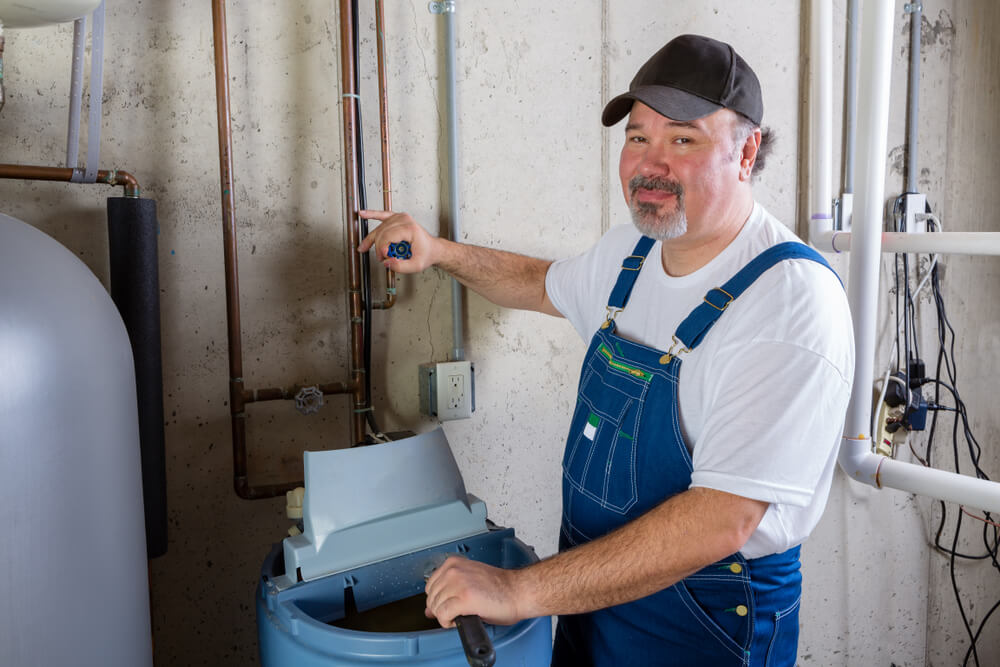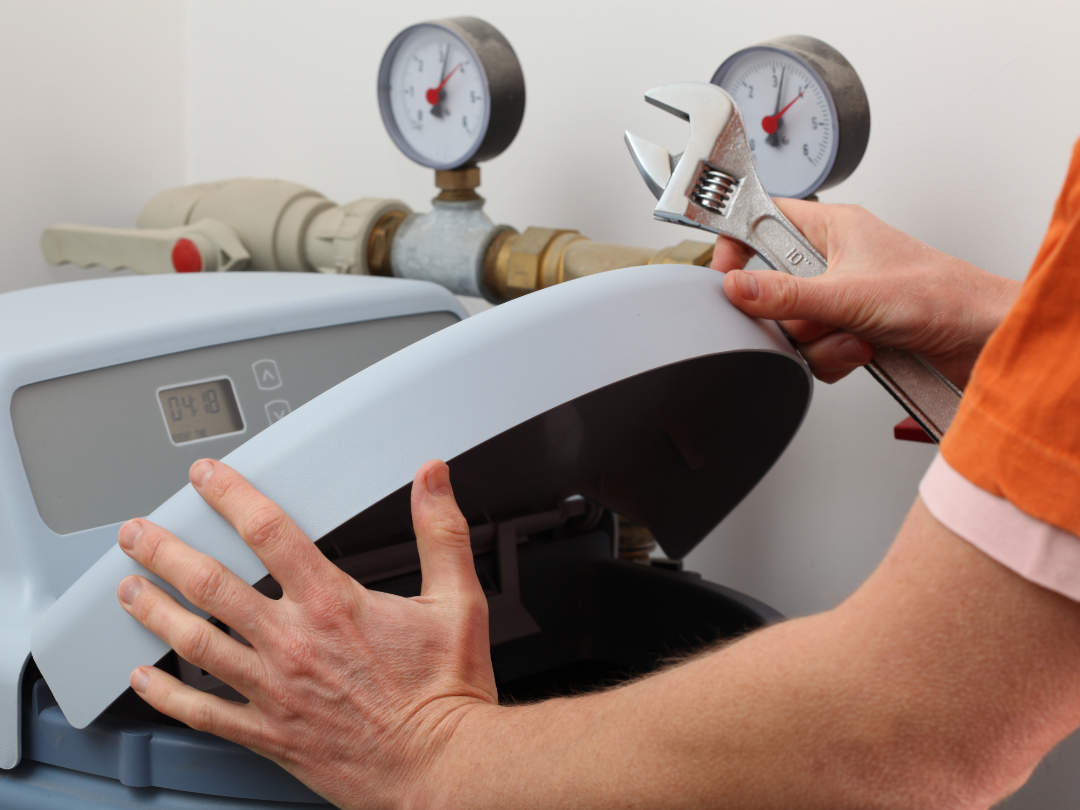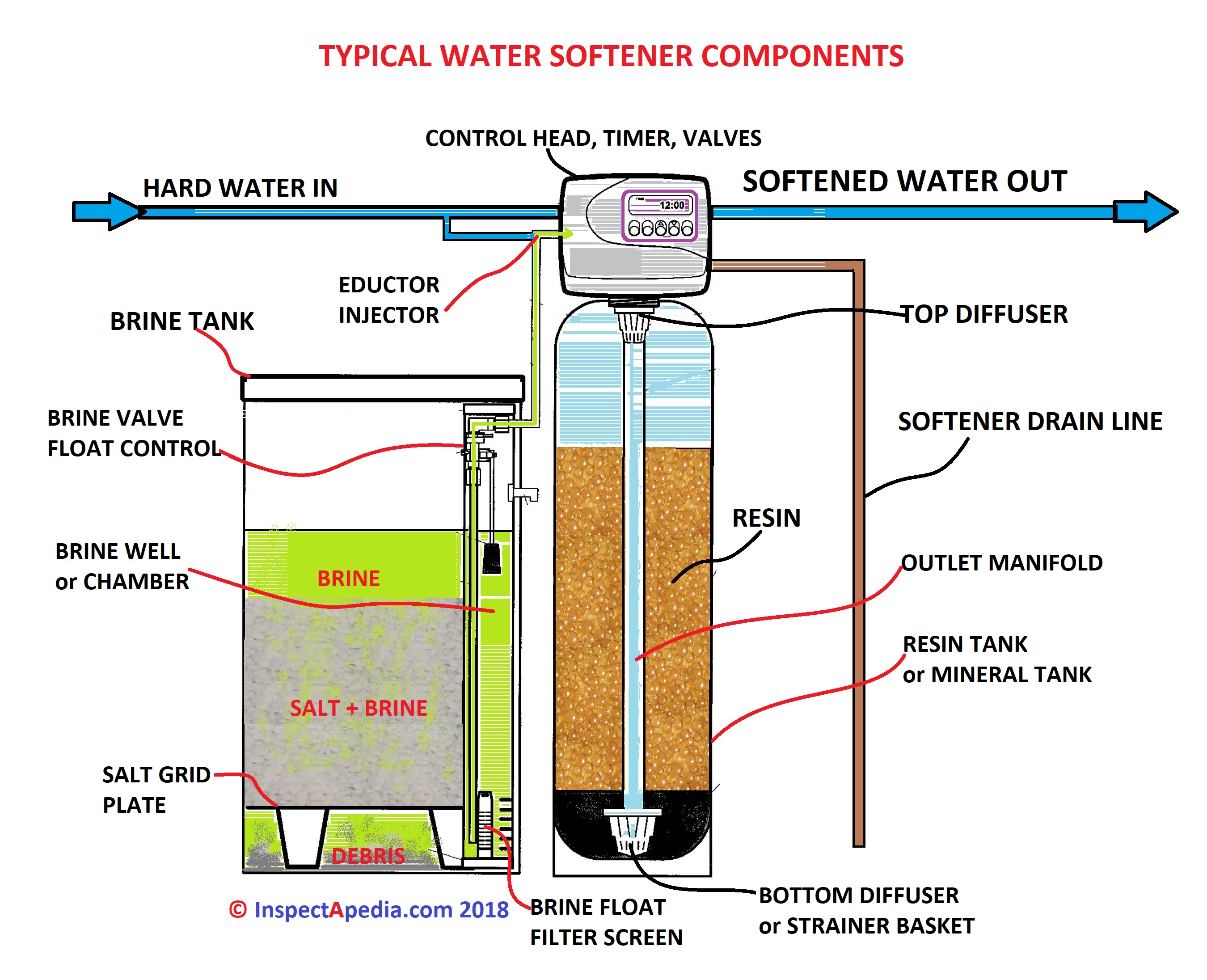Water Softener Maintenance - Keeping Your Home's Water Happy
For many homes, especially in certain areas, having a water softener system is, you know, a pretty important thing to have around the house. It's the piece of equipment that helps make your water feel nice and soft, stopping those annoying hard water problems that can really mess with your daily life. Think about it – no more chalky buildup on your showerhead or spots on your freshly washed dishes. This little helper truly makes a difference in how your home feels and how your appliances work, so, keeping it in good shape is, well, a good idea.
Modern water softeners are, you know, pretty tough; they can often last for quite a few years without much fuss. But, to really make sure they stick around for the long haul and keep doing their best work, giving them a regular look-over and a bit of cleaning will, you know, help them last even longer. It's like anything else you own that you want to keep in good working order – a little attention goes a long way, and your water softener is no different in that respect.
This guide is here to walk you through some simple steps for water softener maintenance. We'll talk about how to deal with common little issues, how to give your system a good clean, and what you can do to make sure your water is always feeling its best. It's about helping you keep your home's water soft and your system running smoothly, so, you can enjoy all the good things that come with having soft water without, you know, any unexpected hiccups.
- China Moon Laser Targeting
- Ramen Recall
- What Does Taco Trump Mean
- Lake Michigan Military Flares
- Richland One
Table of Contents
- Why Does Water Softener Maintenance Matter, Anyway?
- What Does Water Softener Maintenance Involve?
- How Often Should You Do Water Softener Maintenance?
- Can Water Softener Maintenance Really Extend Lifespan?
Why Does Water Softener Maintenance Matter, Anyway?
A water softener is, basically, a filtering system that takes out the stuff that makes water hard. These are minerals that can cause, you know, chalky build-up, spots on your plates, and even, like, dry skin after a shower. If you've ever had to scrub away that stubborn white film on your faucets or noticed your soap not lathering up very well, then you've probably experienced hard water firsthand. This system works quietly to prevent those kinds of everyday annoyances, making your life, well, a little bit easier.
Giving your water softener a proper clean is, you know, pretty key to keeping it working well and making it last a good long time. Just like your car needs oil changes or your air filter needs replacing, your water softener needs a little bit of attention to keep doing its job right. Without this care, the system can start to lose its touch, meaning your water might not be as soft as it should be, and you could start seeing those hard water problems pop up again. It's about keeping things running smoothly, you know?
The Importance of Regular Water Softener Maintenance
Regular care is, you know, super important to make sure your softener does its job well and lasts a good while. This isn't just about avoiding problems; it's also about making sure your system uses salt and water efficiently. A well-cared-for softener won't have to work as hard, which can, you know, save you some money on utilities and salt over time. Our full guide, you know, tells you just how to clean a water softener all by yourself, so you can keep it in top shape without calling in outside help every time.
This do-it-yourself list breaks down the main steps, helping you save some cash and keep your water feeling nice and soft. It's about giving you the know-how to handle the simple stuff, like checking salt levels or giving the tanks a rinse. You don't need to be an expert, just willing to spend a little time. This way, you can avoid bigger, more expensive issues down the road, and keep your home's water quality, you know, consistently good.
What Does Water Softener Maintenance Involve?
Looking after your water softener means checking and topping up the salt, and cleaning the tanks to stop problems. We'll show you how to deal with those salt clumps, put in new salt, give the resin bed a wash, tweak how soft your water gets, clean out the brine tank, and reset the clock on the system. It sounds like a lot, but each step is, you know, pretty straightforward once you know what to do. It's about a few simple actions that add up to a much longer and happier life for your water softener.
When you're doing your regular water softener maintenance, you might need to pour some cleaner into the brine tank. Just check what the folks who made it say about how much to use, because, you know, every system can be a little different. Then, run a cycle by hand to wash out the cleaner and anything else that shouldn't be there. This helps keep the system clean and clear, so it can do its job without any blockages or buildup.
Breaking Up Salt Bridges in Water Softener Maintenance
One common thing you might run into is a "salt bridge." This happens when the salt in the brine tank gets hard and forms a crust, creating an empty space between the water and the salt below. This means the water can't, you know, get to the salt to make the brine solution, and your softener won't work right. To fix this, you can gently poke the salt with a broom handle or a similar tool to break up the bridge. It's usually a pretty simple fix, but it's important to be gentle so you don't damage the tank.
We'll also talk about how to stop salt from getting stuck in bridges or turning into mush, and how to tell if your system is, like, the wrong size for your home. Sometimes, using the wrong type of salt or putting in too much can lead to these problems. Knowing how to prevent them means less time spent on fixes and more time enjoying soft water. It’s all part of, you know, smart water softener maintenance that keeps things running smoothly without too much fuss.
Cleaning the Brine Tank and Resin Bed for Water Softener Maintenance
The brine tank is where the salt water, or brine, is made, and it can get pretty dirty over time with sediment or salt residue. Giving it a good clean every now and then is, you know, a really good idea. You might need to empty the tank, give it a scrub with some mild soap and water, and then rinse it out thoroughly. This helps keep the brine clean, which in turn helps your softener work better. It’s a simple step, but it makes a big difference in the long run, actually.
The resin bed is where the magic happens – where the hard minerals are actually pulled out of your water. Over time, this resin can get, like, fouled up with iron, fine dirt, heavy bits of metal, and other natural stuff that makes it not work as well. To help the resin work better, just pour the amount of water softener cleaner the maker suggests down the brine well and run the system by hand. This cleans the resin and helps it do its job, you know, more effectively, keeping your water softer for longer.
How Often Should You Do Water Softener Maintenance?
You should clean your water softener, like, at least once every year. This is, basically, the main water softener maintenance you'll usually need to do. It’s not a daily or weekly chore, which is good, but setting a yearly reminder can really help keep your system in good shape. This regular check-up helps catch little issues before they become big ones, saving you from bigger headaches and, you know, potentially expensive repairs down the line. It's a small investment of time for a lot of peace of mind.
Regular water softener maintenance is, you know, extra important in spots like greater Phoenix, where the water can be really hard, sometimes up to 17 grains per gallon in homes. When water is that hard, your water softener has to put in more effort to make it soft, and it might need more frequent check-ups to keep doing its job right. So, depending on where you live and how hard your water is, you might find yourself doing these checks a bit more often than once a year, just to keep things running smoothly.
Annual Water Softener Maintenance Checks
Once a year, you should do some water softener maintenance by checking the water levels, cleaning the brine and resin tanks, looking at the valves, and rinsing the whole system out. This comprehensive check helps ensure that every part of your system is working as it should. It’s a bit like a yearly physical for your water softener, making sure all its components are in good working order and ready to tackle another year of making your water soft. You can do this yourself or, you know, have someone else do it if you prefer.
The people who make these systems usually say you should have someone look at your system every couple of years, too. This is a bit more in-depth than your yearly check, and it can catch things that you might miss. Over time, a water softener can, like, get dirty with iron, fine dirt, heavy bits of metal, and other natural stuff that makes it not work as well. A professional inspection can spot these issues and help keep your system working at its best, ensuring it stays efficient and effective for a longer time.
Can Water Softener Maintenance Really Extend Lifespan?
A decent water softener will, you know, probably last around 10 to 15 years. This is true even if you don't really look after it. But with regular water softener maintenance and help from someone who knows what they're doing, you could, like, make it last even longer. A really good unit, though, can keep going for up to 20 years if you keep up with its water softener maintenance. It’s about getting the most out of your investment, ensuring you don't have to replace it sooner than you should, which is, you know, a pretty good deal.
To keep your system going for a long time, proper water softener maintenance is, you know, super important for how long it lasts and how well it works. This guide shows you the main things to do for water softener maintenance and answers common questions to help your system work its best for years. It's about providing you with the knowledge and steps to be proactive, rather than reactive, when it comes to your water softener's health. This way, you can enjoy consistent soft water without interruption.
Making Your Water Softener Last Longer with Smart Maintenance
To help your water softener stick around longer, only use evaporated salt in its tank. This type of salt is cleaner and less likely to cause issues like salt bridges or mushing. Also, rinse out its resin bed every few months. This helps prevent buildup and keeps the resin working at its peak. Clean the venturi valve, both inside and out, twice a year. This small part is crucial for drawing brine into the system, and keeping it clean ensures proper regeneration. And, you know, ask for water softener service and fixes from people who really know their stuff when you need bigger help.
When you do top up your water softener's salt tank, just make sure the salt is, like, good quality. Luckily, water softener salt is, you know, pretty affordable, so choosing a better kind won't break the bank. You'll need to check both the hot and cold water after it goes through the softener. The water coming out of your water softener should, you know, have a hardness of zero or just one. If the water is the same hardness before and after your water softener, then, you know, it's not really working at all, and that's a sign you need to look into it.
Since what repair folks charge for water softener maintenance can, you know, really change a lot, ask for a price over the phone and get more than one estimate for any fixes. This can save you a good bit of money and help you find someone reliable. Handling water softener maintenance for many different places, like a big laundry place, a hotel, a school, or a factory, is, you know, a whole other sort of challenge. Without the right setup, keeping track of papers can, you know, feel pretty messy. But for a home, it’s quite manageable.
Whether you run a big laundry place, a hotel, a school, or a factory, regular water softener maintenance makes sure your system runs well, always gives you soft water, and helps you avoid expensive times when things stop working. For your home, this means consistent soft water for showers, dishes, and laundry, and a longer life for your water-using appliances. It's about keeping things in good shape so you can enjoy all the benefits without any unexpected fuss.
This guide has talked about why water softener maintenance is important, what kinds of tasks it involves, how often you should do these things, and how regular care can help your system last longer. We've covered breaking up salt bridges, cleaning the brine tank and resin bed, and the value of annual checks. We also touched on preventing common issues like salt mushing and ensuring your system is the right size. Following these tips helps keep your water soft and your system working well for years.

Water Softener Maintenance: Seven Tips to Extend its Lifespan

How to Easily Maintain Your Water Softener - RWI Water Systems

Water Softener Maintenance: The Step - By - Step Guide